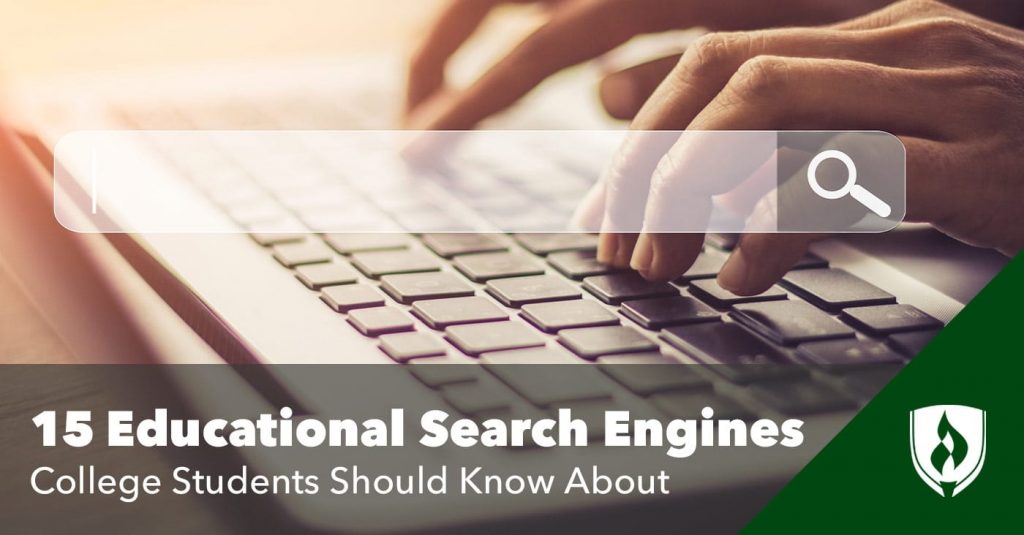Night-time spent looking through Google Education and pulling up unending misleading content outcomes, you’re baffled with the web Education. You have a paper to compose, schoolwork to do and things to learn—and this degree won’t acquire itself. You realize you will not pull off referring to Wikipedia or Buzzfeed in your exploration paper. Indeed, even the huge news motors aren’t sufficiently insightful. You need legitimate hotspots for your schoolwork, and you need them now.
With such countless assets on the web, it’s difficult to limit it down and discover ones that are solid and valuable, yet in addition free for understudies. We’ve saved you time and selected our 15 best free web indexes for research.
15 Scholarly web crawlers each understudy should bookmark
Google Scholar was made as an apparatus to assemble academic writing on the web. From one spot, understudies can chase for peer Education-looked into papers, proposals, books, digests and articles from scholastic distributers, proficient social orders, preprint vaults, colleges and other academic associations.
- Google Books
Google Books permits web clients to peruse a record of thousands of books, from famous titles to old, to discover pages that incorporate your hunt terms. When you discover the book you are searching for, you can glance through pages, discover online audits and realize where you can get a printed copy of Education.
- Microsoft Academic
Worked by the organization that brings you Word, PowerPoint and Excel, Microsoft Academic is a dependable, thorough exploration instrument. The web crawler pulls content from more than 120 million distributions, including logical papers, gatherings and diaries. You can look straight by theme, or you can look by a broad rundown of fields of study. For instance, in case you’re keen on software engineering, you can channel through subjects like computerized reasoning, PC security Education, information science, programming dialects and that’s just the beginning.
- WorldWideScience
WorldWideScience, which alludes to itself as “The Global Science Gateway,” is worked by the Office of Scientific and Technical Information—a part of the Office of Science inside the U.S. Division of Energy. The site uses data sets from more than 70 nations. At the point when clients type an inquiry, it hits information bases from everywhere the world and will show both English and deciphered outcomes from related diaries and scholastic assets.
- Science.gov
Science.gov is worked and kept up with by the Office of Science and Technical Information, the very office that teams up on WorldWideScience.org. This web index pulls from more than 60 data sets, more than 2,200 sites and 200 million pages of diaries, archives and logical information. Indexed lists can be separated by creator Education, date, point and arrangement (text or media).
- Wolfram Alpha
A self-depicted “computational information motor,” Wolfram Alpha doesn’t so much give query items as it looks through answers. Just sort in a subject or question you might be keen on, for example, “What is the capacity of the pancreas?” and the appropriate response will appear without making you look through pages of results. This is particularly convenient for those needing math help Education.
- Refseek
With its moderate plan, Refseek doesn’t look like a lot. Nonetheless, the motor pulls from more than one billion site pages, reference books, diaries, and books Education. It is like Google in its usefulness, then again, actually it centers more around logical and scholarly outcomes—which means more outcomes will come from .edu or .organization locales, just as online reference books Education. It additionally has an alternative to look through records straightforwardly—giving simple admittance to PDFs of scholarly papers.
- Instructive Resources Information Center
Populated by the U.S. Division of Education, the Educational Resources Information Center (ERIC) is an extraordinary device for scholarly examination with more than 1.3 million bibliographic records of articles and online materials. ERIC gives admittance to a broad assemblage of instruction related writing including diary articles, books, research amalgamations, meeting papers, specialized reports, strategy papers and the sky is the limit from there. With in excess of 8,000,000 quests every month, it’s no big surprise why this web index is an incredible web hotspot for instruction.
- Virtual Learning Resources Center
The Virtual Learning Resources Center (VLRC) is an online list facilitating a huge number of academic sites, which are all chosen by instructors and bookkeepers from around the globe. The webpage gives understudies and educators flow, legitimate data for school and college scholarly tasks utilizing a record assembled from research gateways, colleges and library web subject aides suggested by instructors and administrators.
- iSeek
iSeek is an incredible web search tool for understudies, educators, and executives the same. Basically pose an inquiry or enter search subjects or instruments, and iSeek will pull from educational sources to discover precisely the thing you are searching for. The web crawler is protected, smart and time-saving—and it draws from confided in assets from colleges, government and set up non-business locales.
- ResearchGate
ResearchGate is an extraordinary long range informal communication site for researchers and scientists. More than 11 million analysts present their work, which adds up to in excess of 100 million distributions, on the site for anybody to get to. You can look by distribution, information and creator, or you can even ask the analysts inquiries. However it’s anything but a web search tool that pulls from outer sources, ResearchGate’s own assortment of distributions gives a generous choice to any curious researcher.
- BASE
The Bielefeld Academic Search Engine (BASE) prides itself as being “one of the world’s most voluminous web indexes particularly for scholarly web assets.” Utilizing 4,000 sources, the webpage contains results from more than 100 million archives. The high level inquiry choice permits clients to limit their exploration—so regardless of whether you’re searching for a book, survey, talk, video or proposal, BASE can give the particular organization you need.
- Infotopia
Infotopia portrays itself as a “Google-elective safe web crawler.” The scholarly internet searcher pulls from results that have been curated by curators, educators and other instructive specialists. An exceptional pursuit include permits clients to choose a class, which goes from workmanship to wellbeing to science and innovation, and afterward see a rundown of inside and outer assets relating to the theme. So on the off chance that you don’t discover what you’re searching for inside the pages of Infotopia, you will most likely discover it in one of its many recommended destinations.
- PubMed Central
This site is ideally suited for those contemplating anything identified with medical services or science. PubMed Central is worked by the National Center for Biotechnology Information, a division of the U.S. Public Library of Medicine. The data set contains multiple million full-text diary articles. It’s like PubMed Health, which is explicitly for wellbeing-related exploration and examines and incorporates references and modified works to in excess of 26 million articles.
- Lexis Web
Exploring legitimate subjects? Lexis Web is your go-to for any law-related requests you might have. The outcomes are drawn from lawful locales, which can be separated by standards like news, blog, government and business. Clients can likewise channel results by locale, practice region, source and document design.
Begin looking
Pulling up an Internet search may be natural to you at this point. In any case, a little planning into where you start your chase can make your life a lot simpler. Save yourself the time swimming through fundamental Google indexed lists and use a portion of these instruments to guarantee your outcomes will be acceptable with scholarly norms.
As an understudy at Rasmussen University, you’ll approach library assets and administrators to assist you with your examination or composing for any of our classes. Visit our understudy experience page to get familiar with the help you’ll have at Rasmussen University.

